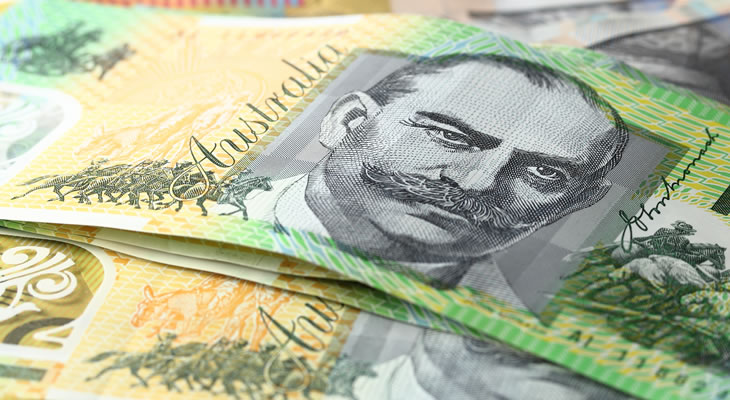Pound to Australian Dollar Exchange Rate Climbs despite Brexit Anxiety
Despite broad Brexit uncertainty leaving Pound (GBP) movement mixed, the Pound Sterling to Australian Dollar (GBP/AUD) exchange rate has rebounded since last night as investors have sold the Australian Dollar (AUD) on market risk-aversion.
High volatility and broad fluctuations have been a pattern for GBP/AUD in recent weeks, as last week saw GBP/AUD plummet from 1.8762 to briefly touch a March low of 1.8356 before recovering and closing the week near the level of 1.8652.
This week’s movement has been similar so far, with GBP/AUD briefly tumbling to a low of 1.8488 before trending closer to the week’s opening levels again at the time of writing on Wednesday afternoon.
The Pound lacks in domestic support, and uncertainty over the direction of the Brexit process is leaving the currency directionless, but the Australian Dollar was sold en masse in reaction to the latest Central Bank news and as a result GBP/AUD recovered.
Pound (GBP) Exchange Rates Steadies as Investors Await Brexit Developments
A lack of notable UK data or surprising Brexit developments in recent sessions has left the Pound’s movement limp, as investors await the next big Brexit news before acting on the British currency.
UK Parliament is holding indicative votes in the hopes that it could find an agreed solution to the current deadlock in the process, with just over two weeks until the EU’s new Brexit date of the 12th of April.
However, markets are not too optimistic that Parliament will reach an agreement or that the Brexit outlook will change significantly.
Overall though, a worse-case scenario no-deal Brexit is currently perceived as unlikely and the government’s Brexit plan is perceived as gradually gaining support, so the Pound is holding steady rather than weakening.
Justin Onuekwusi, Portfolio Manager at Legal and General Investment Management in London, believes the government’s Brexit deal still has a decent chance:
‘I think chances of May’s deal passing are higher than the market is expecting at the moment,’
Australian Dollar (AUD) Exchange Rates Slump in Reaction to Reserve Bank of New Zealand (RBNZ)
Amid a lack of notable Australian data this week so far, the Australian Dollar has been influenced more by global growth concerns, risk-sentiment, and movement in major rivals.
Wednesday’s Asian session saw the Reserve Bank of New Zealand (RBNZ) hold its March policy decision, and while its decision to leave monetary policy frozen was unsurprising, the tone the bank took on the economic outlook was more dovish than economists had expected.
Noting slowing global economic growth and how it is impacting nations New Zealand is close to, like Australia and China, the RBNZ indicated it may have to cut New Zealand interest rates at some point in the foreseeable future.
As the RBNZ became the latest major Central Bank to take a more dovish stance and the New Zealand Dollar (NZD) plummeted in response to the news, investors were more hesitant to take risks.
This meant that the relatively risky Australian Dollar was unappealing as well, and the Australian Dollar weakened for most of the session.
Pound to Australian Dollar (GBP/AUD) Exchange Rate Investors Anticipate Brexit News
As there is no notable Australian data expected until the end of the week, and Thursday’s news is unlikely to have a big impact on market risk-sentiment, the Pound to Australian Dollar (GBP/AUD) exchange rate is likely to be driven by Brexit news over the next day or so.
Over the coming days, the UK government’s next steps on Brexit may become clearer as the results of Parliament’s ‘indicative votes’ process come in.
If the government does show a willingness to alter its Brexit plans according to Parliament’s votes, the Pound could strengthen as investors would become more hopeful about the possibility of a soft Brexit.
On the other hand though, if Parliament comes to no decisions or the government indicates it will not change its stance, Brexit uncertainties will persist and no-deal Brexit fears may return.
The Australian Dollar, on the other hand, will continue to be driven by risk-sentiment.
If Brexit uncertainties worsen, this could make investors risk-averse and put additional pressure on the ‘Aussie’, though the Pound to Australian Dollar (GBP/AUD) exchange rate could also be influenced by US-China trade negotiations or changes in Federal Reserve interest rate hike bets.


Comments are closed.